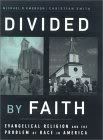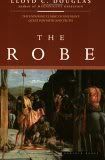 In this chapter Scott Bader-Saye kicks off the final stretch in which he talks about hospitality, generosity and peacemaking as ways to combat fear in his book Following Jesus in a Culture of Fear.
In this chapter Scott Bader-Saye kicks off the final stretch in which he talks about hospitality, generosity and peacemaking as ways to combat fear in his book Following Jesus in a Culture of Fear.
He begins with The Risk of Hospitality, calling us back to the discussion in chapter 2 about how a culture of fear can lead to an ethic of security, with 'virtues' like suspicion, accumulation and preemption. These 'virtues', however, easily lead to a decline in hospitality - if we view the stranger with suspicion and see him as a threat, we are unlikely to risk opening our homes or lives to him. In a post 9/11 America, it is quite easy to see how individually and corporately we have adopted this attitude. But this mentality threatens our commitment to the Christian ethic of love for God and love for our neighbor.
Next he identifies a less obvious threat to hospitality: community. We've all probably experienced to some degree how easy it is to start to tribalize within our communities, with sharp boundaries defining who is in and who is out. When we are driven by fear, it becomes increasingly important to surround ourselves by people like 'us', disavowing all that may be 'strange' in a stranger in order to feel secure. It goes against most of our natural impulses to trust in God (see the previous discussions on providence) rather than our own ability to protect ourselves, especially knowing that "following... God will lead us into the unknown where safety is simply not the point." (102)
However, community can also serve as the context for hospitality. If we allow the boundaries to remain porous, shifting our communities from being 'bounded sets' to 'centered sets' as suggested by Brian McLaren, we become defined by where we are in relation to the center (Christ) rather than if we fit into the boundaries established by the group. This is immediately uncomfortable, as it adds a certain fuzziness to our identity. Christine Pohl (whose book on hospitality, Making Room, is excellent by the way) says this:
Part of the difficulty in recovering hospitality is connected with our uncertainty about community and particular identity. Hosts value their 'place' and are willing to share it; strangers desire welcome into places that contain a rich life of meaning and relationships. By welcoming strangers, however, the community's identity is always being challenged and revised, if only slightly. While this is often enriching, it can occasionally stretch a place beyond recognition. (108)
We can look to the early church in Acts to see some of the ways in which welcoming the stranger forced the Jewish core to reshape their notions of identity as they invited gentiles into their communion. Serious centuries-old boundary breaking took place that required much more of a total paradigm shift than most of us will have to undergo. We need to embrace the body of Christ metaphor given by Paul and start celebrating diversity in our communities, risking the 'death to self' that takes place when we start to actually welcome difference, letting go of our pride and holding our identity loosely enough to allow it to be refined.
Next week: The Risk of Peacemaking









2 comments:
Really appreciated this post, Jasie. Thanks!
Thanks for your thoughts, Jasie. -Mike
Post a Comment